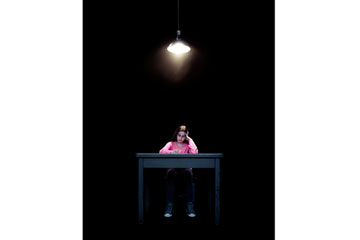
The sophomore sat paralyzed as the minutes ticked by. One hour later, time was up for the exam in a statistics class at the University of Nevada, Las Vegas, and he turned in his work: it was completely blank, save for his name.
As any parent or teacher knows, tests can create crippling anxiety in students, and anxious kids can perform below their true abilities. But new research in cognitive science and psychology is giving us a clearer understanding of the link between stress and performance and allowing experts to develop specific strategies for helping kids manage their fears.
These potential solutions are reasonably simple, inexpensive and, as recent studies show, effective. Some of them work for a broad range of students, while others target specific groups. Yet they're mostly unfamiliar to many teachers and parents who remain unaware that test anxiety can be so easily relieved. The Laurel School, an all-girls private school in Shaker Heights, Ohio, is mounting an all-out campaign against the fears that tests induce. Lisa Damour, a consulting psychologist at Laurel and the director of its Center for Research on Girls, runs student workshops on test anxiety, counsels students about their worries and even hands out pencils with motivational messages on big exam days. "Our efforts to help students manage their test anxiety have definitely made a difference," she says. "The girls--and their teachers--tell me they perform better on tests when they use the techniques we've taught them."
Such interventions may be needed more than ever. In the 12 years since the passage of the No Child Left Behind Act, frequent high-stakes exams have become the norm at every public school in every state in the country. Standardized testing programs cost states a total of $1.7 billion yearly, according to a recent report from the Brookings Institution. Poor performances on these exams can have severe consequences: students with low scores can be held back, teachers whose students do poorly can be fired, and schools with below-average overall results can be closed entirely. "Schools and teachers are under a lot of pressure to meet standards, and that pressure gets passed on to students," says Nathaniel von der Embse, a psychologist at East Carolina University who studies tests and their stresses. "The prevalence of test anxiety has definitely risen along with the use of test-based accountability."
What's worse, this anxiety can expand over time into any situation in which a student is conscious of being evaluated--from a class presentation to a college-admissions exam like the SAT--and can lead to diminished self-esteem, reduced motivation and disengagement from school. It affects students of all ages and ability levels, according to Mark Ashcraft, chair of the psychology department at UNLV, who taught the student who turned in the blank statistics exam. "Test anxiety can have very long-term effects, affecting an individual's entire life," Ashcraft notes. "People who feel anxious about math tests, for example, may avoid taking math and science classes in high school and college and cut off promising career paths as a result."
ATTACKING ANXIETY
